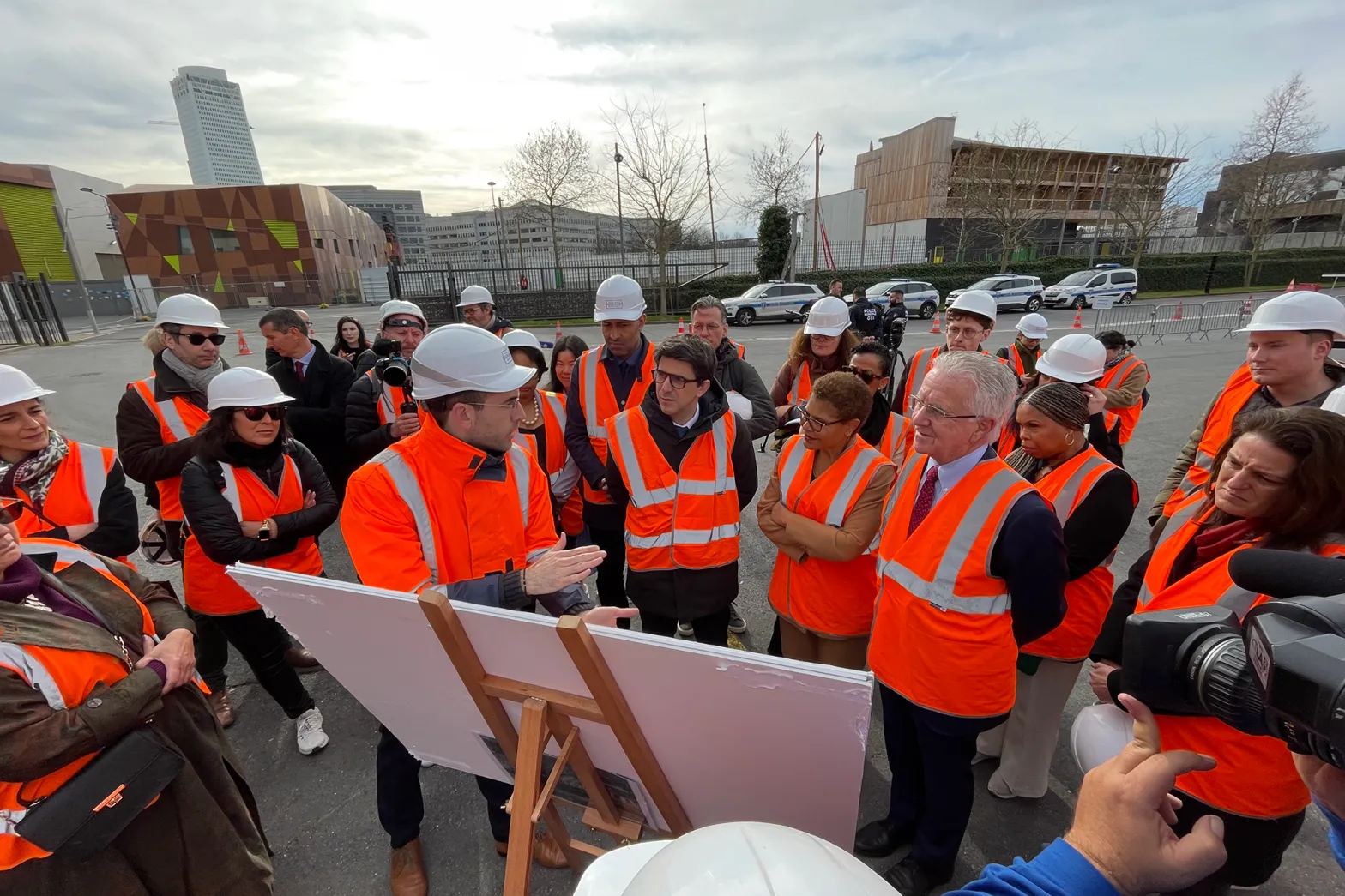Los Angeles Secures $900M in Federal Funding for Olympics
‘With the 2028 Olympic Games just a few years away, we are investing in transportation infrastructure that both helps the Games run smoothly and makes a lasting improvement to the mobility and connectivity of the communities who need it most.’
—Senator Alex Padilla
City News Service
The Los Angeles region has secured nearly $900 million in federal funding to support transportation and infrastructure projects ahead of the 2028 Summer Olympics, Mayor Karen Bass has announced.
The money comes from a congressional spending package signed into law by President Joe Biden over the weekend, and from new federal grant funding. A large share of the money — $709.9 million — will go toward two LA Metro projects: the East San Fernando Valley Light Rail Transit Project and sections two and three of the D (Purple) Line Subway Extension Project.
During our international delegation to Paris to prepare for the 2028 Olympics and Paralympics Games, the message was clear: There’s no time to waste in strengthening our local infrastructure and transportation system to be ready to welcome the world for the Games,” said Bass, who also serves as the chair of Metro’s board of directors.
The East San Fernando Valley Light Rail Transit Project will receive $66.9 million to improve connections and access to crucial destinations. The first segment of the line is a 6.7-mile at-grade alignment that will run along Van Nuys Boulevard and will include 11 new transit stations.
The Purple Line subway extension is being constructed in three sections, and will connect downtown with West L.A. It is part of a broader 9-mile project that will provide a high-capacity alternative to driving for commuters.
Metro anticipates receiving $165 million for section two (between Wilshire/La Cienega and Century City) and $478 million for section three (between Century City and Westwood), with all sections expected to open prior to the 2028 Olympics.
Bass expressed her gratitude to Biden, Sens. Alex Padilla and Laphonza Butler and Los Angeles’ congressional representatives for their continued partnership.
“With the 2028 Olympic Games just a few years away, we are investing in transportation infrastructure that both helps the Games run smoothly and makes a lasting improvement to the mobility and connectivity of the communities who need it most,” Padilla said in a statement.
In addition to the $709.9 million secured through the U.S. Department of Transportation’s New Starts and Expedited Project Delivery Pilot Programs, the region will also receive $160 million in new federal grant funding through the Reconnecting Communities Pilot Program and the Neighborhood Access and Equity Programs.
That money will fund the following programs:
— $139 million for LA Metro to reconnect communities across highway and arterial barriers by creating multimodal investments: bus speed and reliability improvements, first/last mile strategies and projects, mobility hubs, and non-capital mobility solutions.
— $9.96 million for a partnership between LA Metro, Caltrans and LA County Public Works for construction of a dedicated pedestrian and bicycle overcrossing adjacent to the existing Humphreys Avenue bridge over the 710 Freeway in East Los Angeles.
— $5 million for the Port of Los Angeles to support a pedestrian bridge over two mainline freight tracks, which can accommodate emergency vehicles and connect the economically disadvantaged Wilmington community with the Wilmington Waterfront.
— $3.59 million for Friends of the Hollywood Central Park. In partnership with the city’s Department of Recreation and Parks, Healing Hollywood aims to use community planning grant funds to take the Hollywood Central Park, a cap park over the Hollywood Freeway, from a concept design to a shovel-ready project.
— $2 million for the city of Los Angeles to support community planning activities with the aim of creating 1.7 acres of new open space in one of the most park-poor areas of the city and remove a high-injury arterial adjacent to a high concentration of elementary schools by closing Wilshire Boulevard to vehicular traffic from Alvarado Street to Carondelet Street.
“This is great news for anyone who has to navigate our infamous traffic in LA County,” Metro CEO Stephanie Wiggins said. “I want to convey my thanks to Metro’s board of directors for putting us in a position to receive such favorable news from Congress and I’d like to thank LA County’s congressional delegation and Senators.”tion










